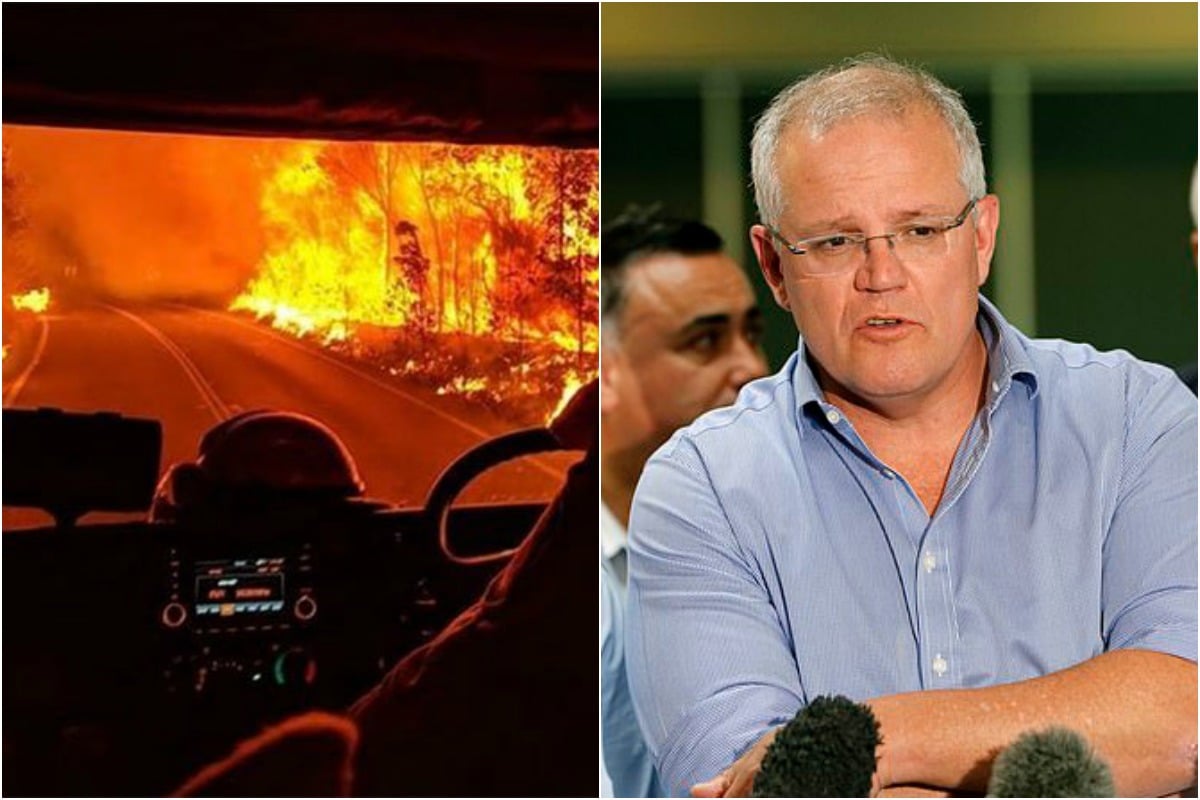
As our backyard burns, our Prime Minister Scott Morrison has borrowed a platitude from President Donald Trump’s phrasebook. He’d like to send “thoughts and prayers”.
At a time like this, it’s difficult to think of anything more useless.
Thoughts and prayers don’t rebuild homes.
Thoughts and prayers don’t change anything for the families of the three people who are now dead.
They won’t bring back the land that has already been destroyed in a fire season that’s been described as “as bad as it gets”.
They won’t revive the hundreds and hundreds of koalas who have been cremated clutching to the trees that were their homes.
Of course, there is nothing that can be done now to change any of that. We must do the best we can with what we’ve got, which is what thousands of firefighters, SES volunteers and emergency workers are doing throughout NSW and Queensland.
But as we look at the images of smoke-filled skies, towns draped in apocalyptic red, and raging flames as far as the eye can see, it’s difficult not to think: We were warned.
This is precisely what we were told was going to happen.
It’s been 30 years since climate change first became news.
It’s been 13 years since former American Vice President Al Gore released the documentary An Inconvenient Truth.
There’s been papers and conventions and summits and guidelines by the United Nations and a furious teenage girl from Sweden yelling in the faces of (predominantly) men who refuse to pay attention to what is right in front of them.

Top Comments
We’ve always had bushfires in this country. Talk about short memories! In 2009 we lost 173 lives in Victoria on Black Saturday. Far more tragic than the current fires burning. Ash Wednesday in 1983 ... was it climate related then ?? and all the many fires prior to that.
I have a very good memory and yes we have always had a history of fires but they are definitely worsening and becoming more frequent. Also, this drought is going on way longer than they usually do, it is relentless. I am 65 and in my opinion things are changing. The droughts we had when I was a child gave up after a couple of years this has been approximately 15 years of not usual rainfall.
It's absolute crap that we can't talk about the complete and utter failure of Liberal governments to listen to experts and to properly fund fire management plans. Especially since Morrison trots out his "thoughts and prayers", McCormack carries on "inner city greenies", totally ignoring the concerns of regional Australians who are watching their homes burn, and Barnaby reckons that it's all the Green's fault because they oppose fuel reduction burns (they don't, fuel reduction burns are part of Green policy and they aren't in power, so it's moot, anyway). If they are going to say such stupid, ignorant things, they can cop some reality.
Yes Laura, you are absolutely right. Barnaby Joyce going on about two deceased people and their political persuasion, when he could have absolutely no idea, yet if climate change is mentioned, apparently now is not the time. Well it’s not exactly the time to discuss peoples politics when they are strangers to you and they are dead. How long do we have to put up with these prize idiots running our Australia. Oh I know where we are going wrong we need to pray for better ones and pray for rain and when the rain finally does come Scott stupid Morrison will say, we thank God for sending the rain and I would then like to ask ‘who sent the drought’. Honestly.